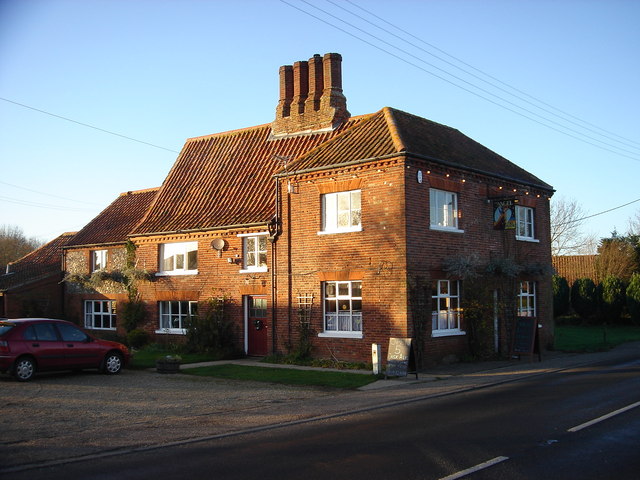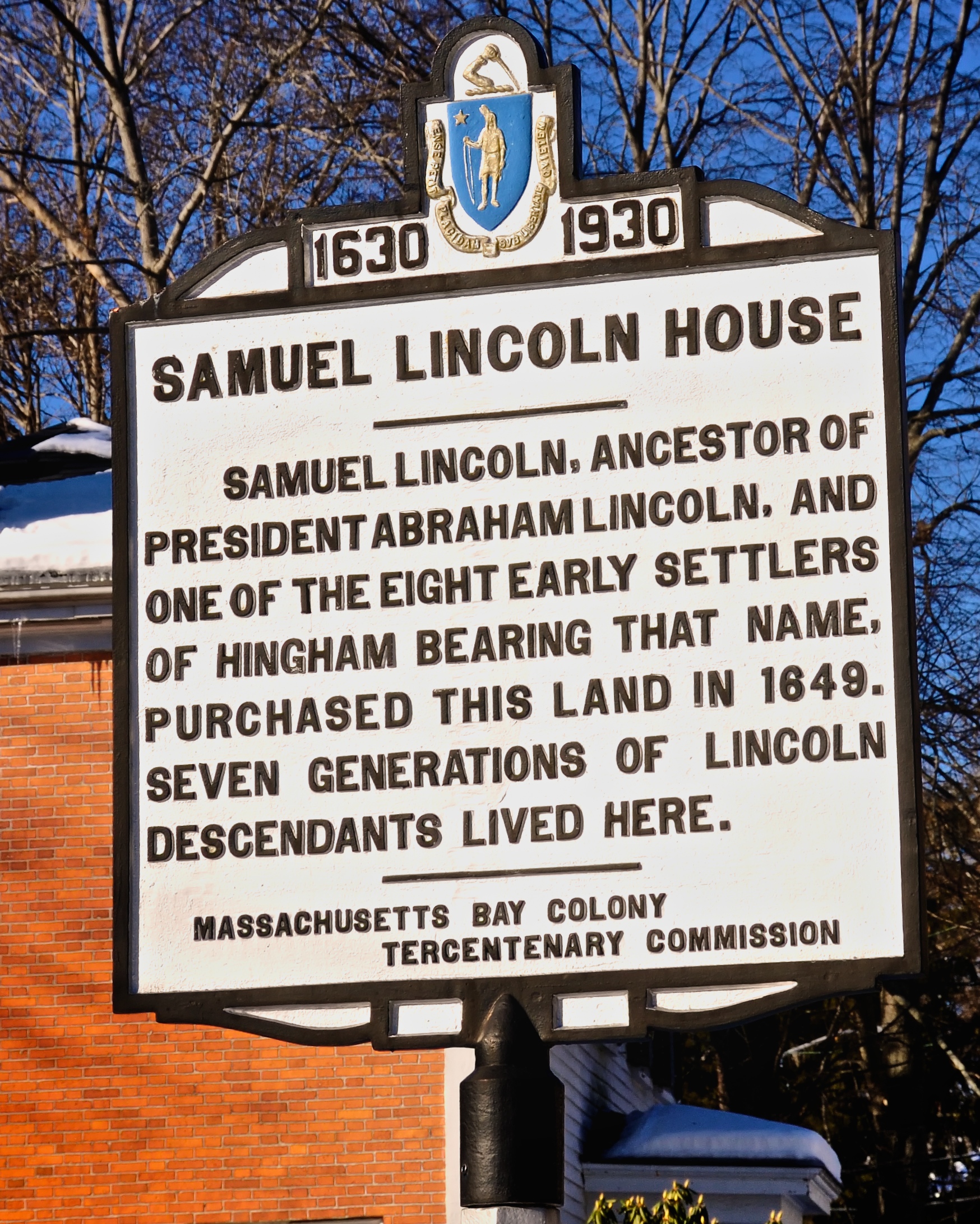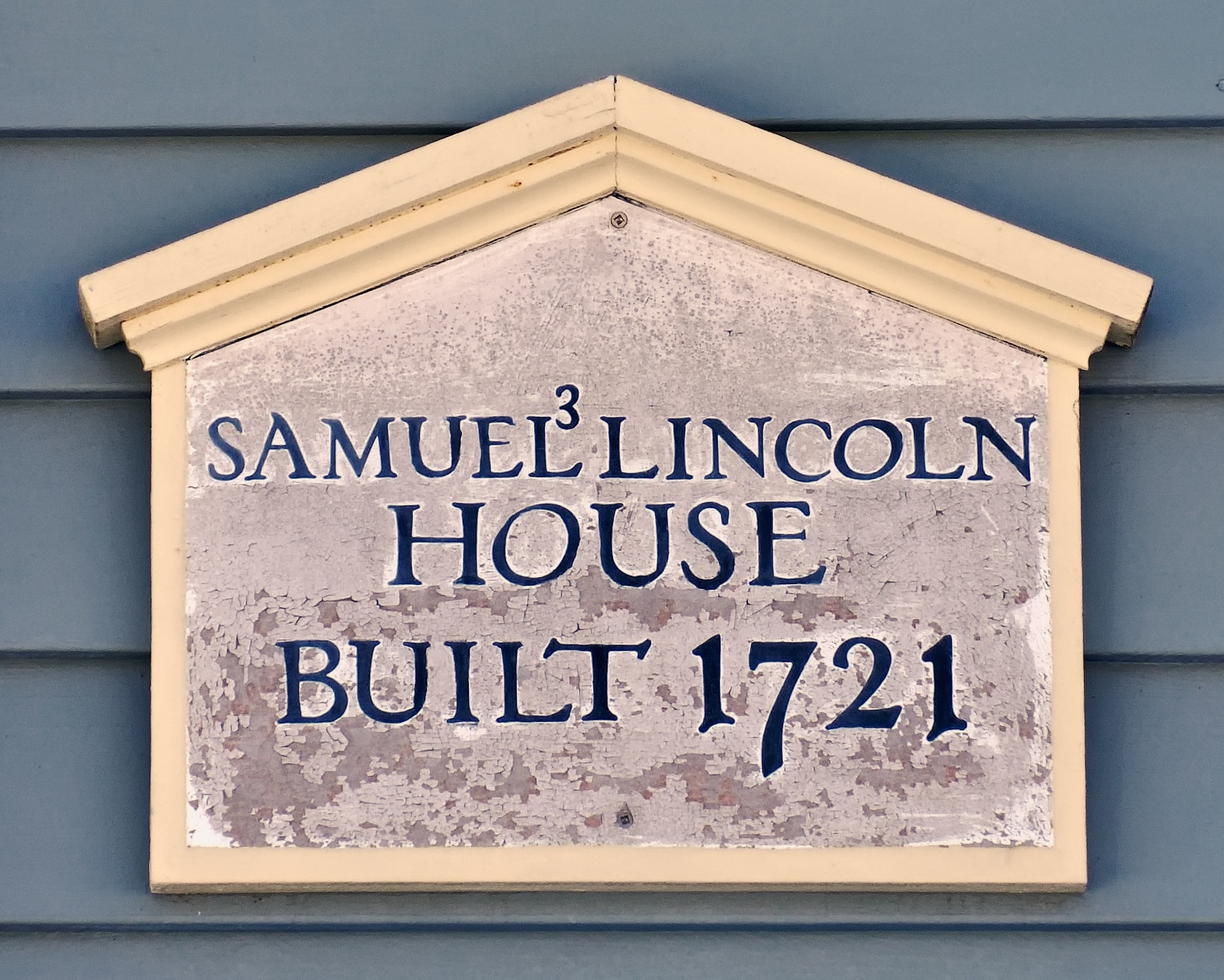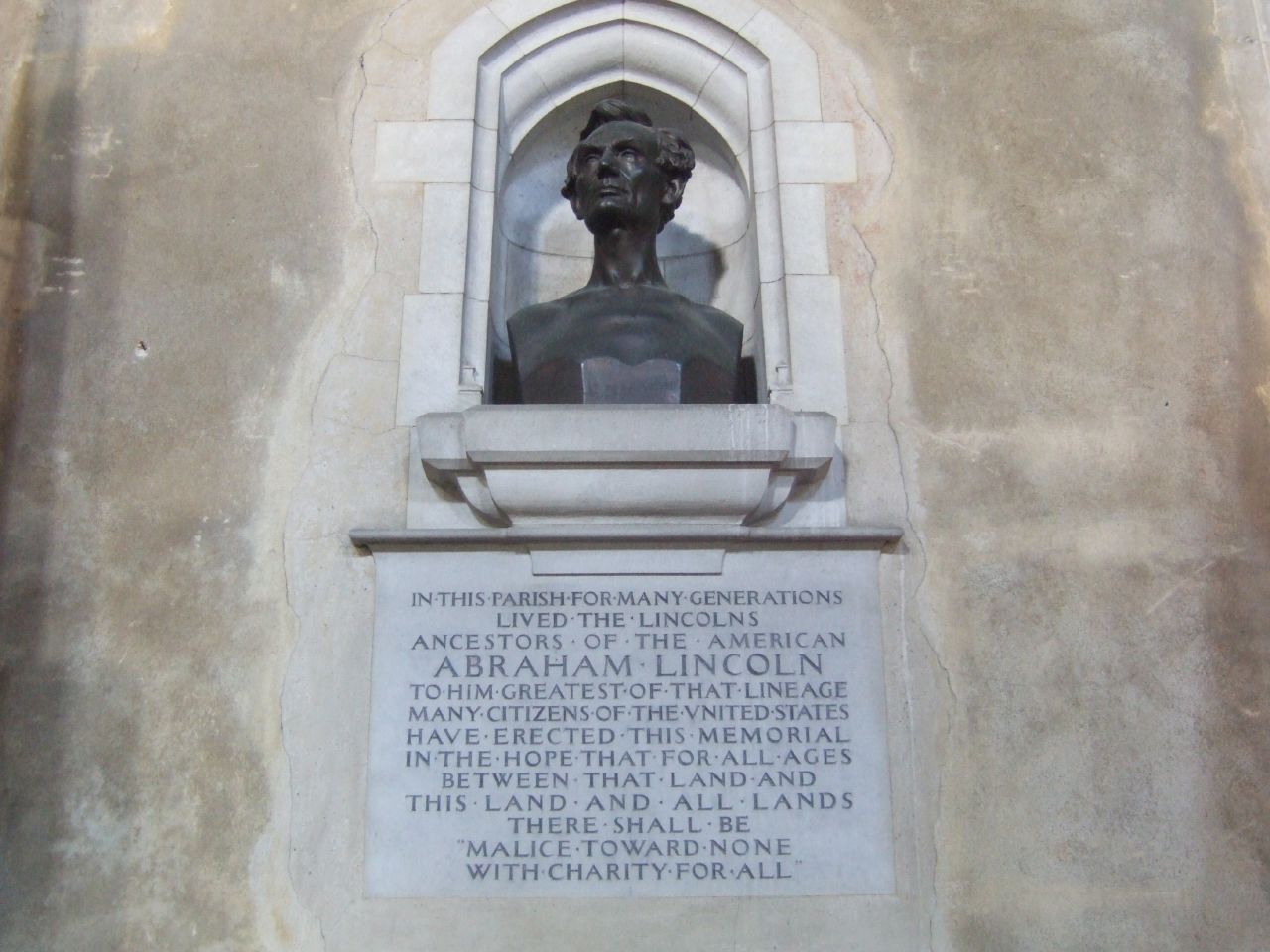1. Overview
Samuel Lincoln (1622-1690) was an Englishman who emigrated to the Massachusetts Bay Colony in 1637 and became the progenitor of a prominent branch of the Lincoln family in the United States. His lineage includes numerous influential American political figures, most notably his fourth-great-grandson, President Abraham Lincoln. Born into modest circumstances in Hingham, Norfolk, England, Lincoln's journey to America as an apprentice weaver marked the beginning of a family legacy deeply intertwined with the development of American democracy and social progress. His descendants played significant roles in the nation's political landscape, contributing to its governance and advocating for its ideals.
2. Early Life and Background in England
Samuel Lincoln's early life in England was marked by his family's financial struggles, which influenced his vocational training before his emigration to the New World.
2.1. Birth and Family Background
Samuel Lincoln was baptized on August 24, 1622, in Hingham, Norfolk, England. He was the son of Edward Lincoln, who passed away on February 11, 1640, and was buried in the graveyard of St. Andrew's Church in Hingham, England. Samuel's grandfather, Richard Lincoln, had disinherited his earlier children due to a family dispute, which left Samuel's father, Edward, in meager circumstances. Edward Lincoln subsequently abandoned his home in Swanton Morley, near Hingham, and relocated to a small property in Hingham. Richard Lincoln's former home in Swanton Morley is today a village pub.

2.2. Apprenticeship as a Weaver
Due to his family's financial situation, Samuel Lincoln became an apprentice weaver under Francis Lawes in Norwich, England. This training as a textile worker provided him with a vocational skill that would be useful in his new life in America.
3. Emigration to America
In 1637, Samuel Lincoln departed England for the New World aboard the ship John & Dorothy. He traveled with the Lawes family, his former master's family. Although most historical accounts indicate he was 15 years old at the time of his voyage, it has been suggested that he may have misrepresented his age to ensure he was permitted to make the journey. He sailed for the Massachusetts Bay Colony, where his older brother, Thomas Lincoln, known in early records as "Thomas Lincoln the Weaver" to distinguish him from other unrelated individuals with the same name, had already settled. Thomas had established himself in Hingham, Massachusetts, in 1635, where the town had granted him a house lot. Although Thomas married twice, he had no children of his own. Upon Thomas's death, he bequeathed a significant portion of his property, including several house lots, to Samuel and his nephews, providing Samuel with a foundation in the new colony.
4. Life and Family in Massachusetts
Upon his arrival in the Massachusetts Bay Colony, Samuel Lincoln established himself in Hingham, Massachusetts, where he married, raised a family, and contributed to the community's development.
4.1. Settlement and Marriage
Samuel Lincoln settled in Hingham, Massachusetts, where he played a role in the construction of the Old Ship Church. Around 1649, he married Martha Lyford, who was from Ireland and is believed to be the daughter of the Reverend John Lyford. He died in Hingham, Massachusetts Bay Colony, English America, on May 26, 1690, at the age of 67.


4.2. Children and Descendants
Samuel and Martha Lincoln had 11 children. Of these, three died in infancy, but another three lived into their eighties, demonstrating the resilience of the family in the colonial era. Their eldest son, born on August 25, 1650, was also named Samuel. Their fourth son, Mordecai Lincoln, became a blacksmith and is the direct ancestor of President Abraham Lincoln. Genealogists have observed the consistent and widespread use of certain Biblical names within the Lincoln family across generations, including Abraham, Samuel, Isaac, Jacob, and Mordecai. This naming practice was common among early Puritan settlers in the Massachusetts Bay Colony, reflecting their strong religious convictions. Many subsequent Lincoln descendants, including the original immigrant's son, continued to be named Samuel. Samuel's mother, Bridget Gilman, also belonged to a family with a notable history in American governance: the Gilmans of Exeter, New Hampshire. Bridget Gilman was the daughter of Edward Gilman of Hingham, Norfolk, England, whose son, Edward Gilman Jr., emigrated to Hingham, Massachusetts, later moved to Ipswich, Massachusetts, and ultimately settled in Exeter. There, he and his family became prominent businessmen and elected officials, later emerging as fervent Revolutionary War patriots. Nicholas Gilman, a signer of the U.S. Constitution, was a distinguished member of this Gilman family.
5. Legacy and Progenitor Status
Samuel Lincoln's significance lies in his foundational role as the American progenitor of the Lincoln family, whose descendants have profoundly influenced American history and politics.
5.1. Progenitor of the American Lincoln Family
Due to his timely arrival in the Massachusetts Bay Colony and the well-documented ancestry of his lineage for several generations, Samuel Lincoln is widely regarded as the foundational figure of the most prominent branch of the Lincoln family in the United States. His establishment in the New World laid the groundwork for a family that would become deeply embedded in the fabric of American society and governance.
5.2. Relationship with Notable Descendants
Samuel Lincoln's descendants include numerous figures who made significant contributions to American public life. His fourth-great-grandson was Abraham Lincoln, the 16th President of the United States, a central figure in American history who led the nation through the American Civil War and abolished slavery. Other notable descendants include his third-great-grandson, Enoch Lincoln, who served as the Governor of Maine. His second-great-grandson, Levi Lincoln Sr., and third-great-grandson, Levi Lincoln Jr., both held significant political offices in Massachusetts, serving as Representatives, Governor, and Lieutenant Governor. President Abraham Lincoln's children, Robert Todd Lincoln, Edward Baker Lincoln, William Wallace Lincoln, and Thomas "Tad" Lincoln, are among Samuel Lincoln's fifth-great-grandchildren. While Samuel Lincoln established the distant lineage, later generations, such as President Abraham Lincoln, had more immediate family history known to them, including his grandfather (also named Abraham Lincoln), who was a local militia captain and a robust landowner who inherited approximately 200 acre (200 acre) of land in the Rockingham area of Virginia before moving his family from Rockingham to Jefferson, Kentucky.
6. Commemoration
Samuel Lincoln's enduring legacy has been honored through various commemorations and memorials, recognizing his pivotal role in American history and the achievements of his descendants.
In 1937, the 300th anniversary of Samuel Lincoln's arrival in Massachusetts was marked by the dedication of a tablet at the Old Ship Church in Hingham, Massachusetts, a structure he helped build. In England, his prominent descendant, President Abraham Lincoln, is commemorated with a bust in the church of St. Andrew's in Hingham, Norfolk. This bust was unveiled in a 1919 ceremony by the then-American Ambassador, John W. Davis.

Samuel Lincoln's father, Edward Lincoln, who remained in Hingham, England, was buried in the graveyard of St. Andrew's Church after his death on February 11, 1640.